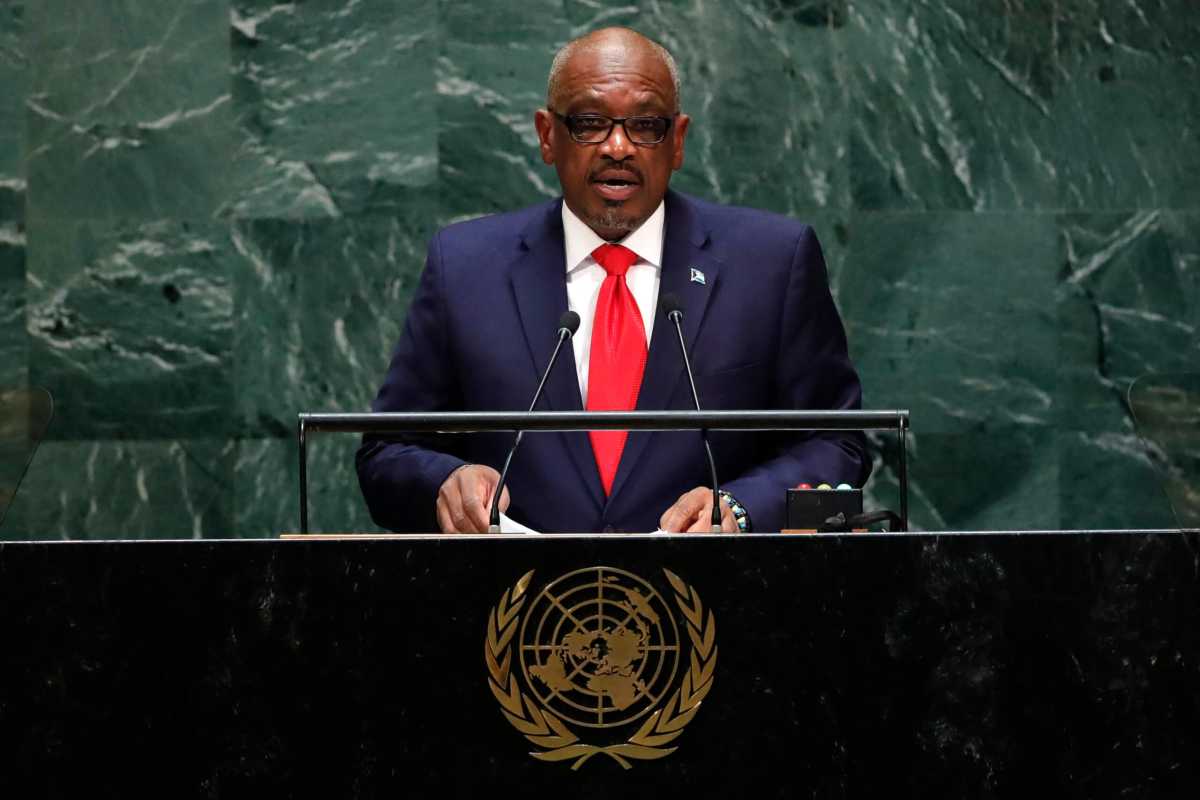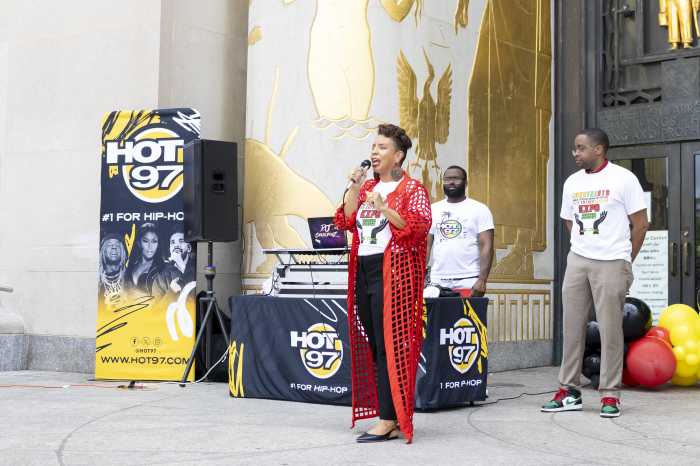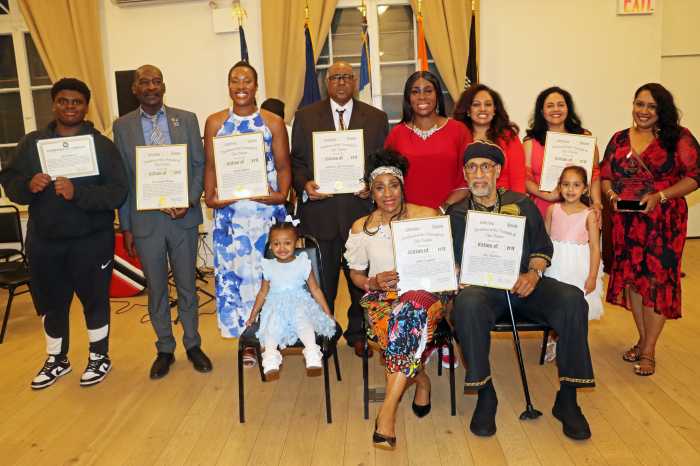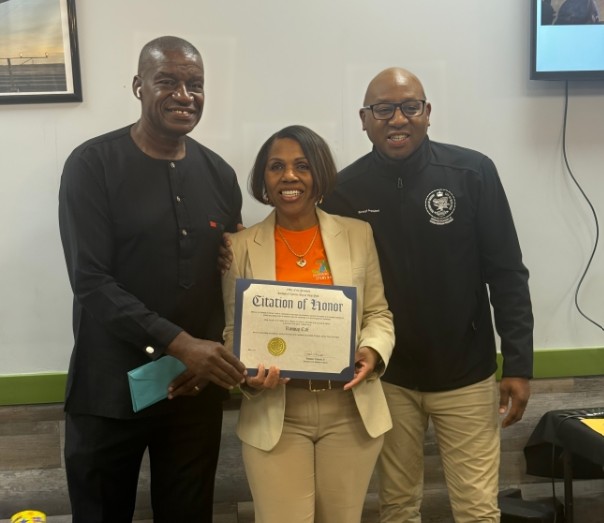Barbados
Barbados has recorded its first two COVID-19 deaths since April 2020, bringing the total to nine.
This was revealed by Minister of Health and Wellness, Lieutenant Colonel Jeffrey Bostic at a news conference last week in which he gave an update on the country’s COVID-19 virus situation, declaring the deaths were two elderly men.
He said the latest victim was 85 years old where an attempt was made to have him booked into a small nursing home in the south of the country, where he would have spent about an hour and a half before he was taken to the Accident and Emergency Department, where he passed away.
The health minister also gave an update of the number of tests conducted by the Best-dos-Santos Public Health Laboratory, since the emergence of the virus in Barbados.
According to him, 93,070 tests had been conducted overall, of which 1,156 were positive.
Colonel Bostic also made a fresh appeal for Barbadians to take precautions to reduce their risk of contracting COVID-19, as he expressed concern about the number of positive cases connected to the various clusters that have been identified by public health officials.
Bahamas
The Bahamas government will be easing some of the restrictions that have been implemented to halt the spread of the COVID-19 virus.
In a statement last week, the Office of the Prime Minister said as of Sunday pharmacies, gas station and laundromats will now be permitted to operate between the hours of 6 am and 9 pm on the islands of New Providence and Abaco.
Outdoor dining at restaurants will also be permitted on Sundays between 6 am and 9 pm, on New Providence Islands and Abaco.
Funerals and wedding receptions remain prohibited on the islands of New Providence, Abaco, mainland Eleuthera and mainland Exuma.
Recently Minister of Health, Renward Wells suggested that Prime Minister, Dr. Hubert Minnis, in his capacity as the competent authority, would relax COVID-19 restrictions amid a continued downward trend of new COVID-19 cases.
As of last week, 8,075 cases have been confirmed, a majority of those cases were confirmed between July and October. Between Jan. 1 and Jan. 19, 176 cases were confirmed.
To date, there have been 1,128 active cases and 6,720 recovered cases. A total of 175 people died of COVID-19 in The Bahamas.
Caribbean
The Caribbean Community Implementation Agency for Crime and Security (CARICOM Impacs) and the Small Arms Survey (SAS) have signed a Memorandum of Understanding (MoU) that will support the region’s efforts to improve its capacity to prevent the illicit circulation of small arms and light weapons.
The MoU was recently signed to formalize existing co-operation between the two entities, also seeks to enhance CARICOM member states’ implementation of commitments under international and regional arms control instruments, with a particular focus on advancing more evidence-based policy to reduce armed violence in the region.
The Trinidad-based Impacs is an institution of CARICOM with primary responsibility for the implementation of the CARICOM Crime and Security Agenda.
Under this MoU, the partners agree to assist each other in realizing their respective strategic objectives in general. The nature of the collaboration will be both consultative and substantive, with partners working together on common policy issues.
CARICOM Impacs and the SAS can also develop and implement joint programs, or initiatives along agreed lines.
Jamaica
The Jamaica government says J$3billion is being spent to vaccinate 16 percent of the population, giving early signals that the medicine could be introduced into the regular inoculation schedule for the population.
Jamaica is among six Caribbean Public Health Agency members that have been provided with the full down payment required for the COVAX Facility.
It was announced that just under 300,000 doses are scheduled to arrive in the island on April 21 by air transport. That will be enough for five percent of the population, health officials said.
Those are to be used to start phase one of the national vaccination campaign.
Health care workers, police, soldiers, correctional officers, customs and immigration officers, parliamentarians, persons in infirmaries, and the elderly are at the top of the list to receive their first vaccine.
Vaccines sites will be set up at the University Hospital of the West Indies, the Bustamante Children’s Hospital, the National Chest Hospital, Spanish Town Hospital, the Manderville Regional Hospital and the St. Ann’s Bay Regional Hospital.
Health centers are also being contemplated to be used as vaccination centers as well.
Other doses of the vaccine are scheduled to arrive in the island on July 21 and Dec. 21. By the end of the period, 16 percent of the population should be vaccinated through COVAX, completing phase one.
Guyana
Guyana Health Authorities across the country have announced that the Takutu River Bridge which links the town of Lethem to Bonfim in Brazil, will remain closed as part of precautions to guard against the spread of the new highly transmissible COVID-19 variant, which was detected in Brazil recently.
With the United Kingdom already banning flights from several South American countries, including Guyana, over the developments in Brazil, Guyanese Minister of Health, Dr. Frank Anthony said Guyana will put its own protective measures in place.
He said Guyana, like other countries, were particularly concerned that the virus was being regarded as more transmissible.
The health minister fears if the strain makes its way into Guyana, which shares a large part of its unregulated border with Brazil, it would lead to a spike in domestic cases and crowding of hospitals across the country.
However, he said Guyana can face challenges in its healthcare system because of its transmissible nature.
Haiti
The United Nations human rights office (OHCRH) has warned that increasing political tensions in Haiti, coupled with insecurity and structural inequalities, could result in protests followed by violent crackdown by authorities.
According to the office, criminal activities such as kidnappings, gang fights and widespread insecurity have increased with “almost total” impunity.
OHCHR spokesperson, Marta Hurtado told reporters at a regular briefing in Geneva last week that added to the volatile mix is re-surging political tensions over the timing and scope of elections and a constitutional referendum proposed by the government.
She said calls for mass protests have been growing, this in turn raises concerns of renewed human rights violations by security forces during the policing of protests as seen during the month-long protests in 2018 and 2019, as well as during demonstrations in October and November last year.
Hurtado urged the government to guarantee accountability for past violations and abuses, ensuring justice, truth and reparations.
Trinidad
The Trinidad and Tobago government put in place a new exemption system, which is similar to an application for a visa for more than 8,000 citizens abroad who have currently applied to return to Trinidad and Tobago.
Minister of National Security, Stuart Young said all previous and new applications to enter Trinidad and Tobago will have to be made through the IT-driven process created by the Ministry of National Security.
The minister said the new system took effect from Monday, Jan. 25, 2020 will bring about “equity,” noting there are people who left Trinidad in October 2020 and are applying to return as the virus continues to rage in different parts of the world, including the United Kingdom where the new variant strain is said to be more deadly.
Young said as of Jan. 21, 2020, 19,941 applications were received by the ministry and 11,682 exemptions were granted. The balance of 8,259 will have to reapply from last Monday.
According to Young, there have been people sending 20-plus emails causing a backlog in applications, and this new system where one can submit a form only once will prevent this.
The Trinidad and Tobago borders have been closed since March last year when the COVID-19 pandemic started to spread around the world.
—Compiled by Azad Ali


























